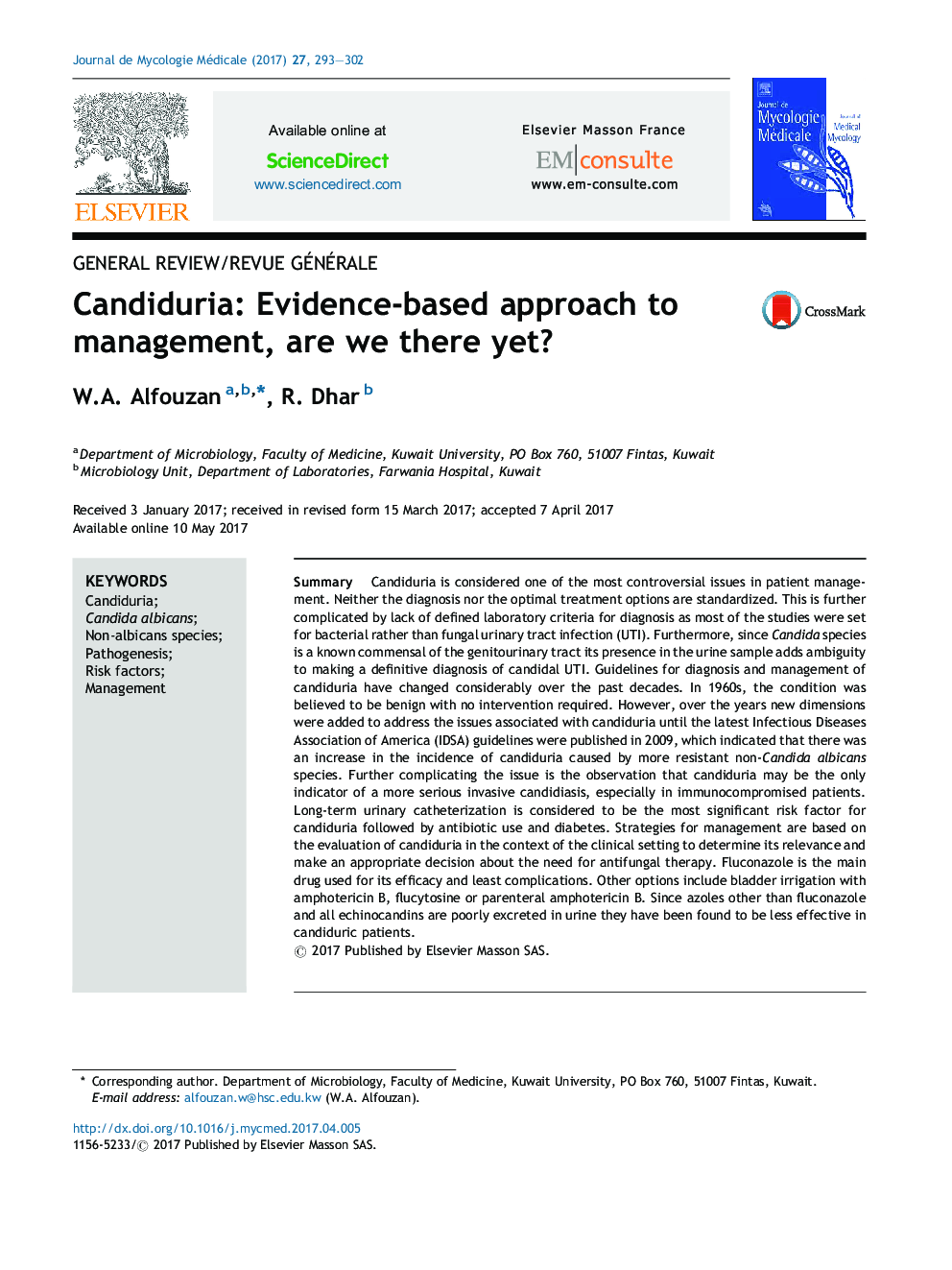| کد مقاله | کد نشریه | سال انتشار | مقاله انگلیسی | نسخه تمام متن |
|---|---|---|---|---|
| 5649937 | 1587892 | 2017 | 10 صفحه PDF | دانلود رایگان |
عنوان انگلیسی مقاله ISI
Candiduria: Evidence-based approach to management, are we there yet?
دانلود مقاله + سفارش ترجمه
دانلود مقاله ISI انگلیسی
رایگان برای ایرانیان
کلمات کلیدی
موضوعات مرتبط
علوم زیستی و بیوفناوری
ایمنی شناسی و میکروب شناسی
انگل شناسی
پیش نمایش صفحه اول مقاله

چکیده انگلیسی
Candiduria is considered one of the most controversial issues in patient management. Neither the diagnosis nor the optimal treatment options are standardized. This is further complicated by lack of defined laboratory criteria for diagnosis as most of the studies were set for bacterial rather than fungal urinary tract infection (UTI). Furthermore, since Candida species is a known commensal of the genitourinary tract its presence in the urine sample adds ambiguity to making a definitive diagnosis of candidal UTI. Guidelines for diagnosis and management of candiduria have changed considerably over the past decades. In 1960s, the condition was believed to be benign with no intervention required. However, over the years new dimensions were added to address the issues associated with candiduria until the latest Infectious Diseases Association of America (IDSA) guidelines were published in 2009, which indicated that there was an increase in the incidence of candiduria caused by more resistant non-Candida albicans species. Further complicating the issue is the observation that candiduria may be the only indicator of a more serious invasive candidiasis, especially in immunocompromised patients. Long-term urinary catheterization is considered to be the most significant risk factor for candiduria followed by antibiotic use and diabetes. Strategies for management are based on the evaluation of candiduria in the context of the clinical setting to determine its relevance and make an appropriate decision about the need for antifungal therapy. Fluconazole is the main drug used for its efficacy and least complications. Other options include bladder irrigation with amphotericin B, flucytosine or parenteral amphotericin B. Since azoles other than fluconazole and all echinocandins are poorly excreted in urine they have been found to be less effective in candiduric patients.
ناشر
Database: Elsevier - ScienceDirect (ساینس دایرکت)
Journal: Journal de Mycologie Médicale - Volume 27, Issue 3, September 2017, Pages 293-302
Journal: Journal de Mycologie Médicale - Volume 27, Issue 3, September 2017, Pages 293-302
نویسندگان
W.A. Alfouzan, R. Dhar,